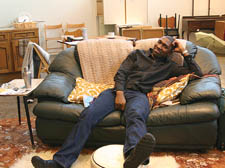| Publications by New Journal Enterprises |
|
| Home | Archive | Competition | Jobs | Tickets | Accommodation | Dating | Contact us |
|
|
|
|
|
All content © New Journal Enterprises, 2006 designed by The Innovatory |

